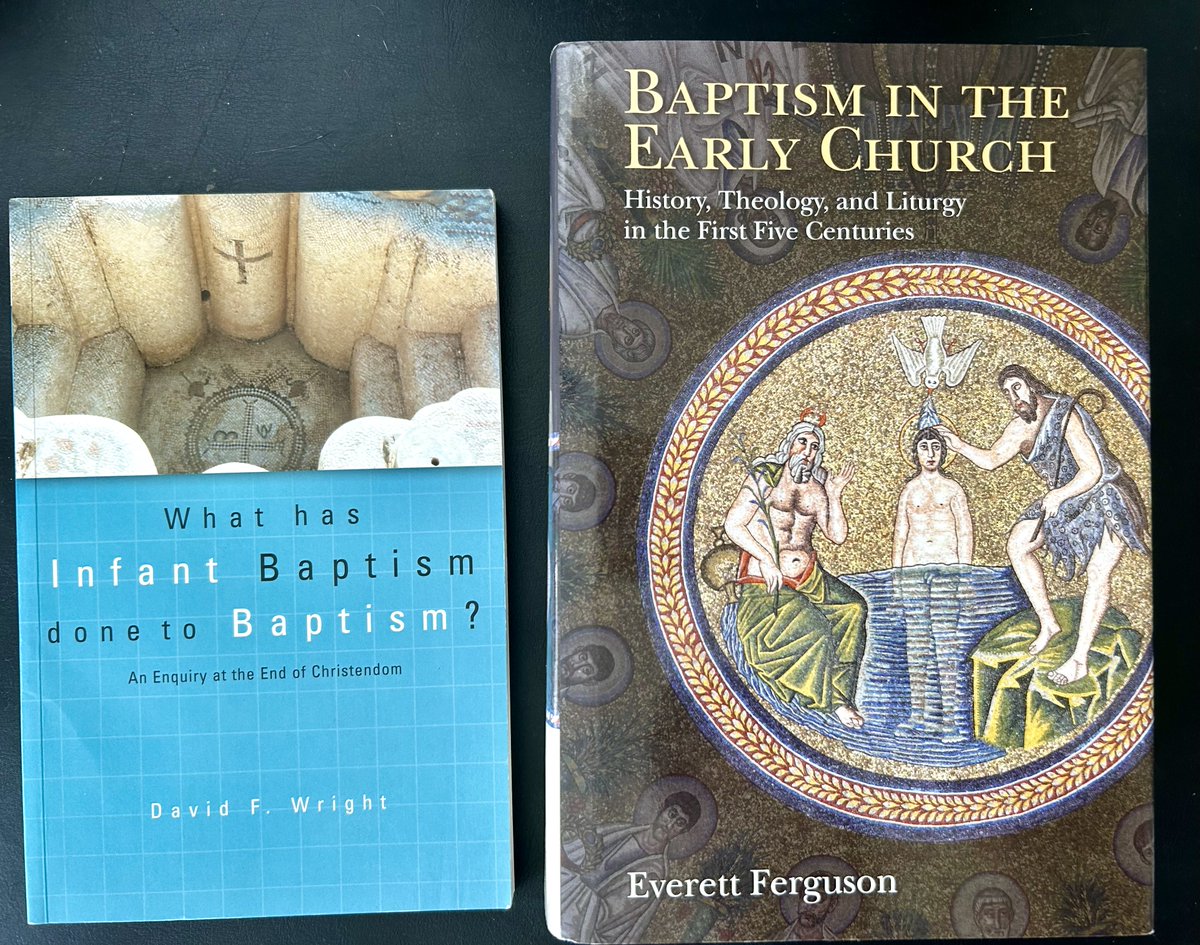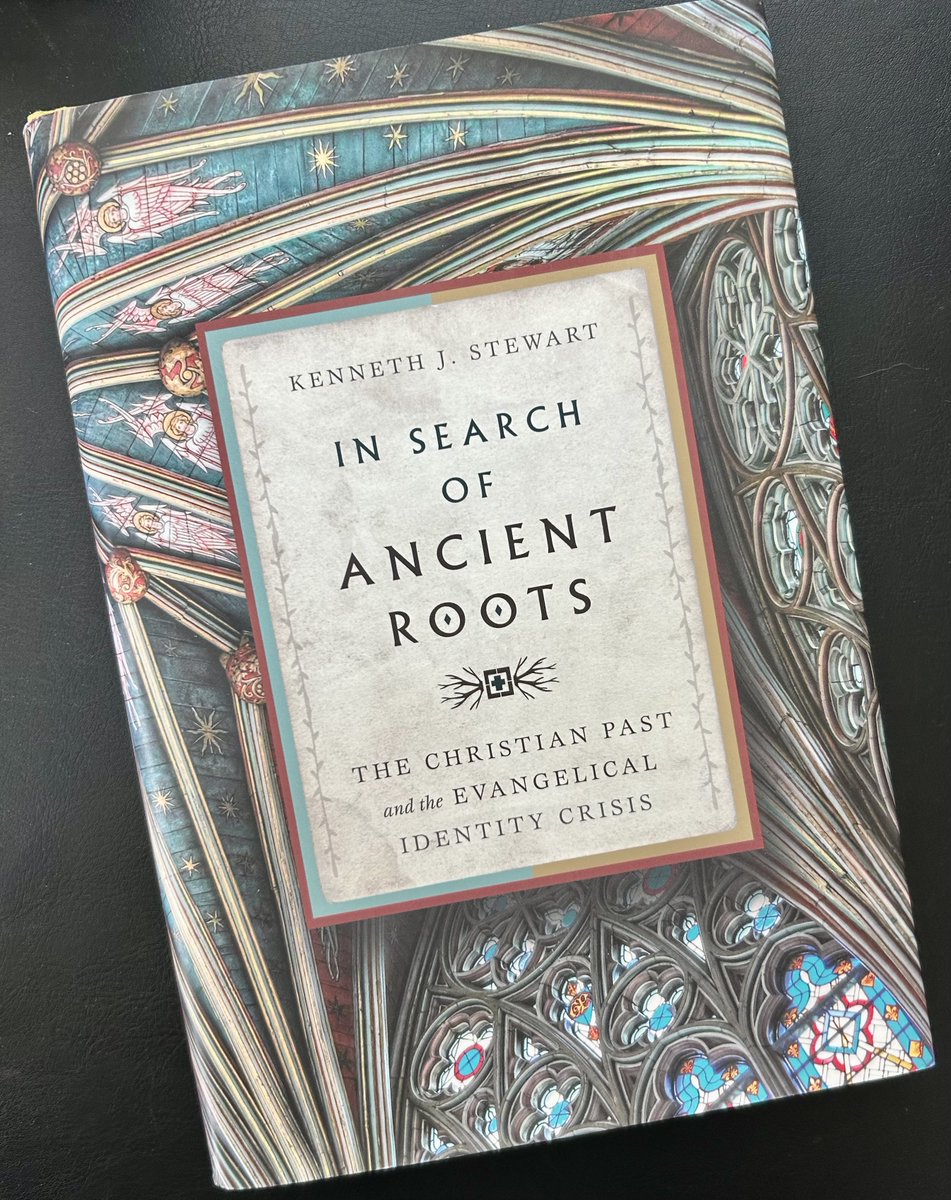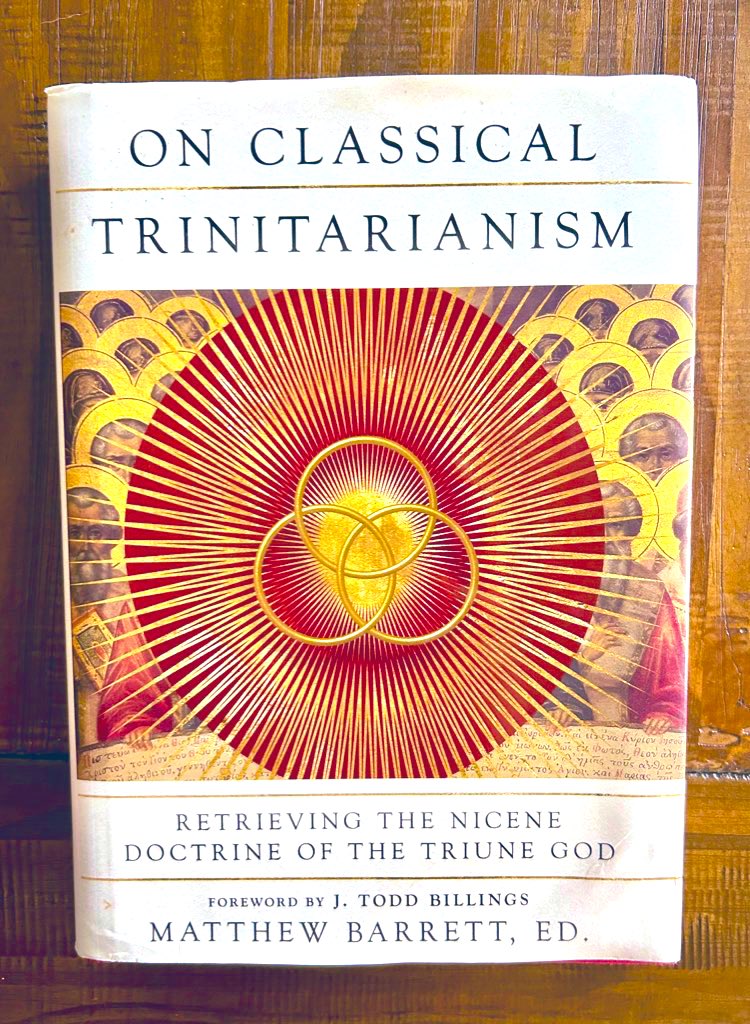What can we conclude about the history of infant baptism and the early church?
The detailed study of historians David Wright and Everett Ferguson lead to at least the following 10 conclusions.🧵
The detailed study of historians David Wright and Everett Ferguson lead to at least the following 10 conclusions.🧵

2/ The biblical paradigm for baptism in the early church was Jesus' baptism, not the apostolic pattern in Acts.
Jesus never commanded the baptism of infants and His blessing of children (Mk 10:13-16) was not used as a prooftext for paedobaptism until the 7th or 8th centuries.
Jesus never commanded the baptism of infants and His blessing of children (Mk 10:13-16) was not used as a prooftext for paedobaptism until the 7th or 8th centuries.
3/ Household baptisms in Acts 16 and 1 Corinthians 1 do not bear the weight advocates of paedobaptism want them to. There can be no certainty as to the ages of any children included.
4/ There is no support for infant baptism in the Didache or the writings of the apostolic fathers.
No one before Cyprian (3rd century) connected the Old Testament practice of circumcising of infant males with the baptism of infants. (Augustine later developed this idea).
No one before Cyprian (3rd century) connected the Old Testament practice of circumcising of infant males with the baptism of infants. (Augustine later developed this idea).
5/ No major early Christian writer substantially addresses the baptism of children before Tertullian in the 3rd century (he was critical).
There is no biography in the early centuries indicating that any church father raised in a Christian family was baptized as an infant.
There is no biography in the early centuries indicating that any church father raised in a Christian family was baptized as an infant.
6/ Infant baptism probably arose from infants suffering from life-threatening conditions conjoined with the belief (that most Protestants would later come to reject) that baptism was absolutely necessary for salvation.
7/ Under normal circumstances, early Christian baptism followed extensive catechists and teaching, ensuring that the baptismal questions were answered by the candidates.
8/ Early Christian architecture indicates that until the 5th century the normal sites for baptism were pools or baths, supplied by moving water, with baptism administered by immersion or pouring.
• • •
Missing some Tweet in this thread? You can try to
force a refresh








